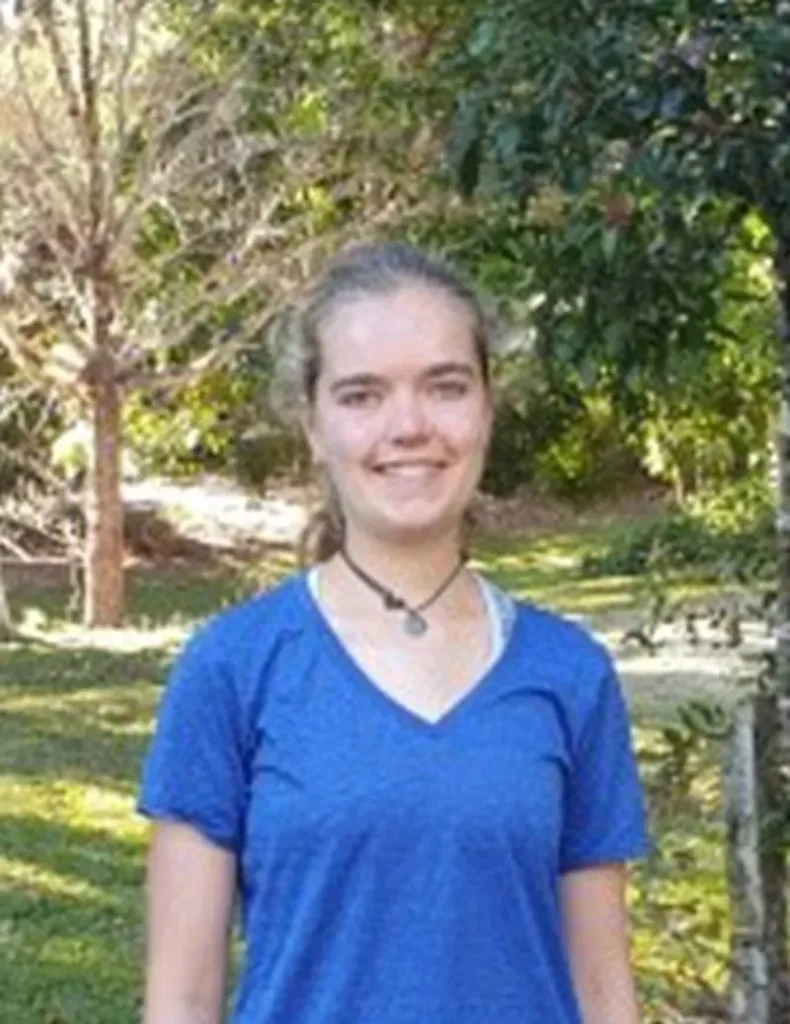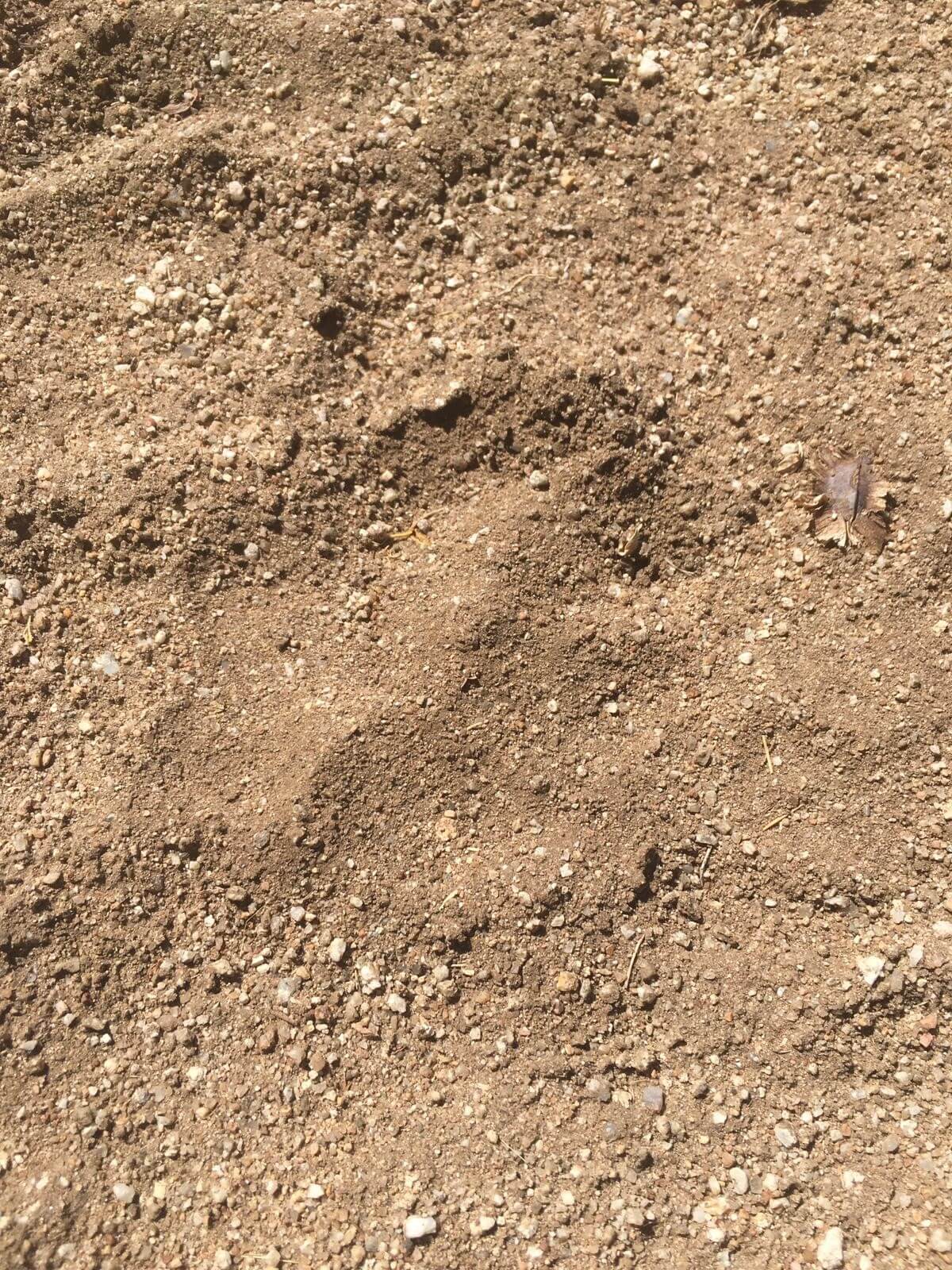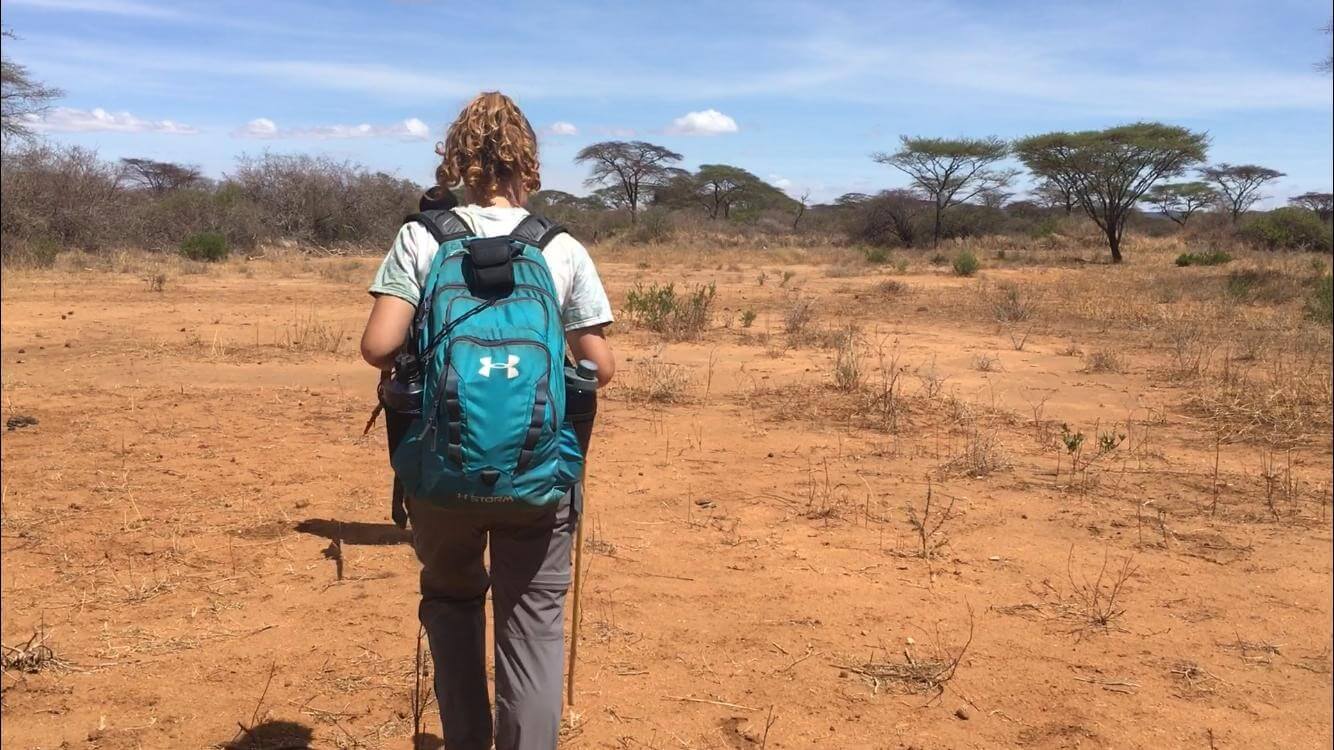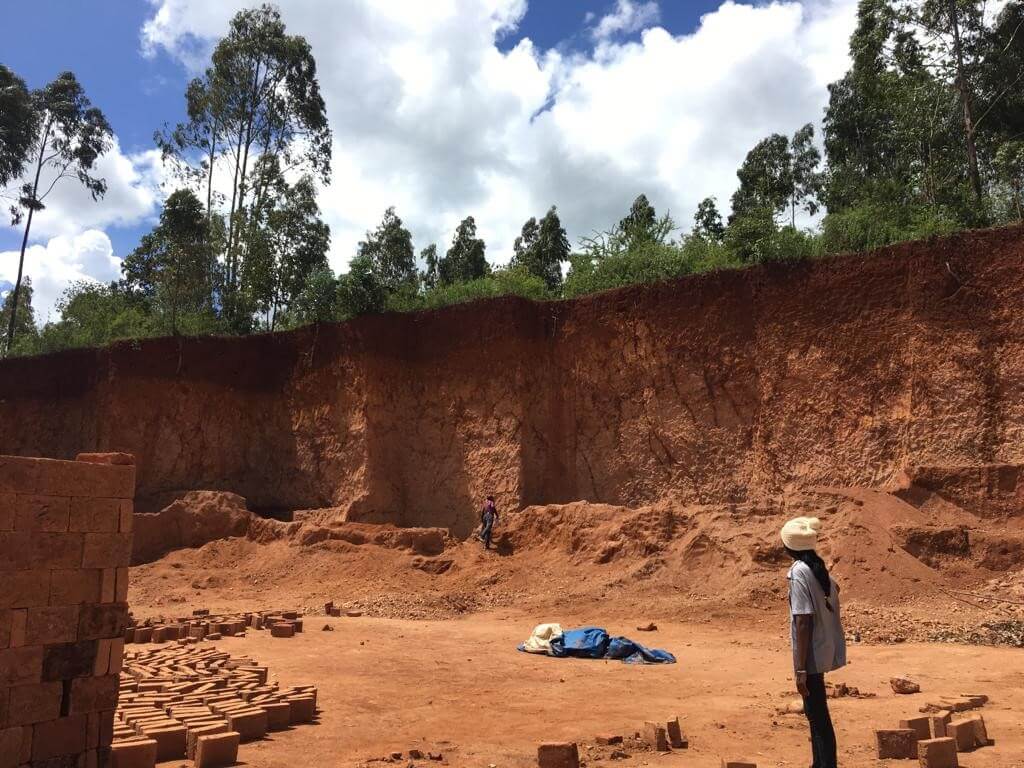
By: Marley Mullin
Off the Beaten Path: Directed Research in Tanzania
Our guide stops us in our tracks and points down.
“Chui,” he says, pointing at the ground.
In the sandy soil, there are marks left by a leopard dragging its prey, likely an impala, towards its hideaway tree. We follow the tracks to a cluster of trees, where our guide points out tracks from hyenas, which perhaps intercepted this leopard with its prey. No other sign of the kill is present. After this short little detour, we consult our GPS and navigate back to the start of our first transect.

A leopard track. Photo courtesy of Camille Beckwith
This is just one of the interesting moments during Directed Research here at the Center for Wildlife Management Studies! Other students encountered a full giraffe skeleton, heard stories about how puff adders are more welcome around a household than house geckos, saw a honey badger on their camera traps, and got to hear local people’s perspectives first-hand on many of the topics they’ve been studying this semester.
Our students are involved in several different projects under our three professors, all of which center around the larger question:
How can changes in land use and resource availability in the Maasai Steppe of Tanzania be managed in such a way as to foster the well-being of local communities whilst safeguarding and promoting biodiversity conservation?
With Dr. Ole Theisinger, students are doing a preliminary study of reptiles and amphibians in the Yaeda Valley, which includes using pit-fall traps, walking transects, and conducting interviews on perceptions of reptiles within the local community. Another group is studying the effects of browsing pressure on acacia-ant mutualism. You can read more about his projects in his blog post!

Student running a transect in Yaeda Valley. Photo courtesy of Camille Beckwith
Other students, working with Dr. Christian Kiffner, are conducting wildlife assessments in Yaeda Valley, studying the effectiveness of elephant damage prevention methods, assessing the reliability of local guides to identity mammal tracks, and looking at population trends in the Tarangire-Manyara Ecosystem. These students spent seven days in the Yaeda Valley walking many kilometers, recording tracks, dung, and animal sightings with their local Hadzabe guides. The Hadzabe are one of the last hunter-gather tribes left in Africa, and are expert trackers and navigators in the bush. Several students also set up camera traps around our camp and would quiz our guides on which tracks they saw, comparing their sightings with what the pictures showed. The other three days were spent in the Tarangire-Manyara ecosystem driving transects.
With Mr. John Mwamhanga, students are tackling the policy side of conservation, conducting interviews on the perceived impacts and local peoples’ responses to climate changes and their effects on natural resources use in Tarangire-Manyara Ecosystem, the amount and impacts of using firewood for burning bricks in Karatu district, and locals people perceived attitudes towards and socio-economic impacts from Randilen Wildlife Management Area (WMA) in Tarangire-Manyara ecosystem. This last topic is of particular interest to me, because two of my classmates during Spring 2015 did preliminary interviews about the Randilen WMA when it was first starting! I’m interested to see how views have changed (or not changed) over the past four years. It’s wonderful to see SFS invested, long-term, in the communities that surround us.

Brick-making in Karatu. Photo courtesy of Elle Ping
Now that the exciting, but exhausting, portion of fieldwork is done, students have buckled down to analyze their raw data and write rough drafts of their group research papers. In between all of the hard work, they’re still finding time to walk the rolling roads of Rhotia, play card games with the staff, plan our Thanksgiving feast, volunteer in the community at our local elementary school and tree nursery, and savor their last few weeks here in Rhotia.
Related Posts

Camila Rojas: Alumni Spotlight⭐

